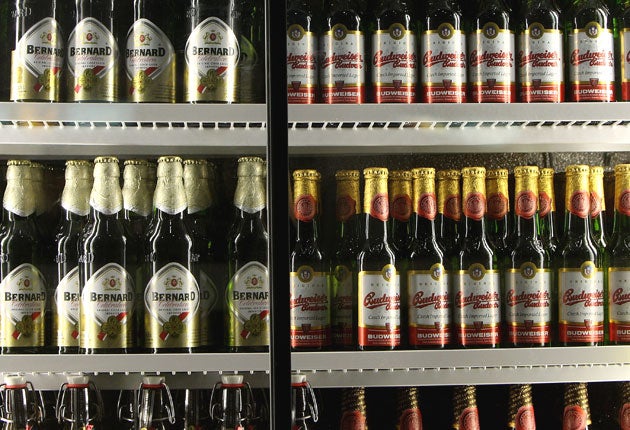Call for tougher laws on alcohol
Government drugs advisers demand warnings on ads

Drinks firms should be forced to post warnings on alcohol ads as part of wide-ranging measures to cut binge drinking, the Government's official drugs advisers have warned.
Laws should also ban alcohol advertisements on television between 6pm and 9pm, and link taxes and prices to the strength of drinks, the Advisory Council on the Misuse of Drugs said.
The council, a panel of experts appointed by the Home Secretary to advise on the classification of drugs, backed the idea of labelling drinks to indicate how many units of alcohol it contained, the calorie content and a calorie comparison to an equivalent amount of food. In one example, the council said, drinking a pint of beer was like eating a sausage roll. The council also called for a crackdown on low-price supermarket drink offers and "happy hour" promotions in pubs and clubs.
In a strongly-worded intervention released just days before the Government publishes its alcohol strategy next week, the council also suggests banning high-strength beers from some public spaces, such as airports, and backed a zero drink-drive limit for under-21s.
Ministers are considering making drinks firms put cigarette-style health warnings on television advertisements for beer, wines and spirits, and may impose bans on cut-price "happy hours" and speed drinking deals when they announce their alcohol strategy next week.
A formal submission from the council to the Department of Health, expressed particular concern at "deep discounting" by supermarkets. It warned: "Such cheap availability encourages bulk purchase and consumption. Of specific concern is that the pricing puts alcohol more within the budgets of young people".
The council said the Government should discourage the sale of drinks aimed at young people, such as sweet wine, cider, strong lager and spirits.
They warned that the low price of drink was encouraging many people to "tank up at home on cheaper alcohol before visiting bars and clubs, thus exacerbating risks to health and antisocial behaviour".
The campaign group Alcohol Concern welcomed the report, calling on ministers to target discount sales and impose a minimum price per unit on alcohol. Don Shenker, the organisation's chief executive, said: "We know there is a clear link between the availability of alcohol and the level of abuse. The cheaper the alcohol is, the more it is abused."
A spokesman for the Wine and Spirit Trade Association, said: "We're in danger of alienating millions of ordinary people who enjoy a drink."
Earlier, the council's regular public meeting heard warnings from a senior academic that Ecstasy was "too dangerous" to be downgraded from a class A drug. The council is considering the classification of the drug.
Professor Andy Parrott of Swansea University criticised the new chairman of the advisory council, Professor David Nutt, for suggesting that Ecstasy was less dangerous than alcohol and tobacco.
Join our commenting forum
Join thought-provoking conversations, follow other Independent readers and see their replies
Comments
Bookmark popover
Removed from bookmarks